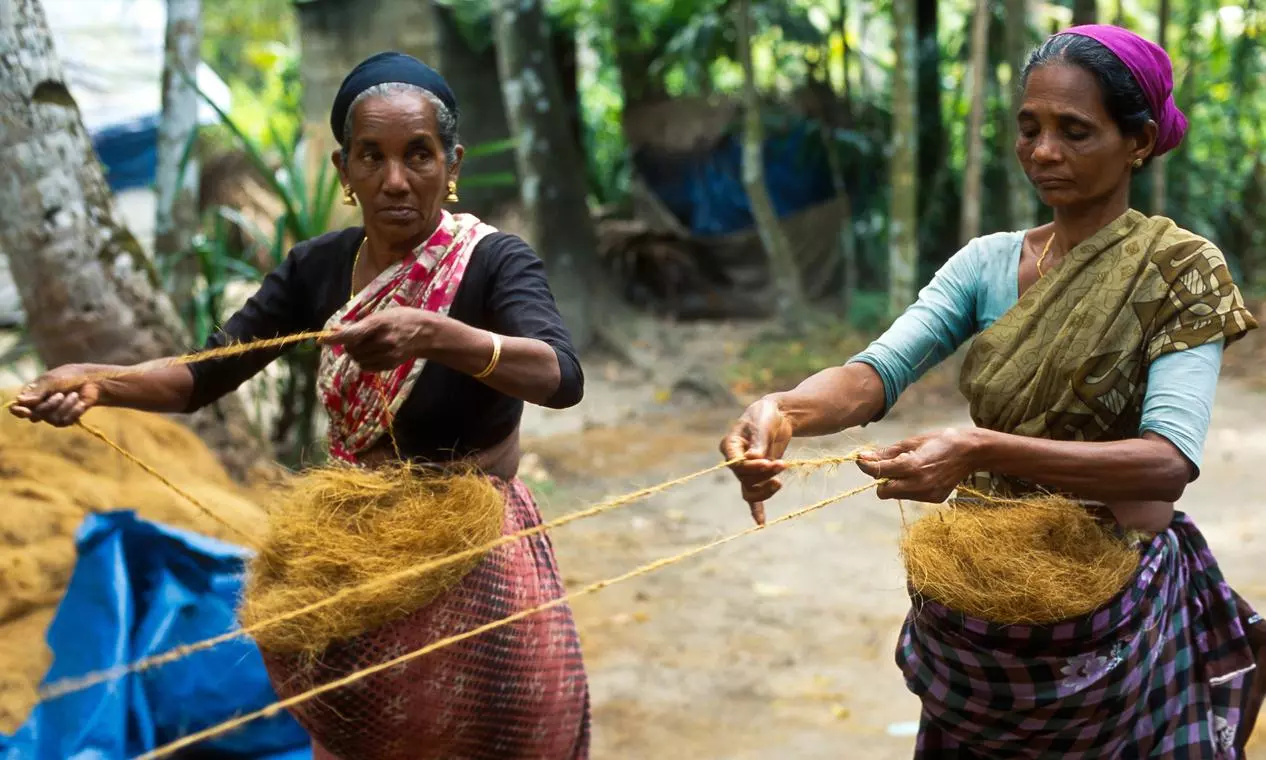
- Home
- India
- World
- Premium
- THE FEDERAL SPECIAL
- Analysis
- States
- Perspective
- Videos
- Sports
- Education
- Entertainment
- Elections
- Features
- Health
- Business
- Series
- In memoriam: Sheikh Mujibur Rahman
- Bishnoi's Men
- NEET TANGLE
- Economy Series
- Earth Day
- Kashmir’s Frozen Turbulence
- India@75
- The legend of Ramjanmabhoomi
- Liberalisation@30
- How to tame a dragon
- Celebrating biodiversity
- Farm Matters
- 50 days of solitude
- Bringing Migrants Home
- Budget 2020
- Jharkhand Votes
- The Federal Investigates
- The Federal Impact
- Vanishing Sand
- Gandhi @ 150
- Andhra Today
- Field report
- Operation Gulmarg
- Pandemic @1 Mn in India
- The Federal Year-End
- The Zero Year
- Science
- Brand studio
- Newsletter
- Elections 2024
- Events
- Home
- IndiaIndia
- World
- Analysis
- StatesStates
- PerspectivePerspective
- VideosVideos
- Sports
- Education
- Entertainment
- ElectionsElections
- Features
- Health
- BusinessBusiness
- Premium
- Loading...
Premium - Events

Kerala's communists and the culture they championed educated women and ended gross discrimination against them, but this fell far short of realised gender parity
The Yakshi is a major character of Kerala’s folklore, as well as a minor deity with temples dedicated to her.
She presents herself in two forms: one, a nubile seductress waiting on the wayside at dusk, and the other, a demoness, who carries the man who veers off the path into her embrace to the top of a tall palm, and devours him, leaving out just the hair and the bones, which would greet passers-by at the foot of the palm the next morning.
Mirror to Malayali
Kerala’s self-image is akin to the Yakshi’s charming version, fed by the handy accolades well-meaning outsiders lavish on the state: enlightened, educated, politically empowered, evolved, with an eponymous development model marking its achievement of high social development at relatively low levels of income.
Now, the Hema Committee, appointed by the state government to study the conditions of misogyny in the state’s film industry, has held up a mirror to the Malayali, in which the image that stares back at him is that of the Yakshi about to start her dinner.
Make no mistake. The committee found entrenched misogyny and discrimination against women – who are paid less than their male colleagues, work long hours without access to toilets, without an employment contract, and inside a macho culture of alcohol, sexualised banter and licentiousness masquerading as artistic idiosyncrasy.
And, it indicts not just the film industry, but all of Kerala’s society and politics.
Caste solidarity
Kerala’s vaunted social reform movement challenged caste hierarchy, but quickly regressed into a caste solidarity movement, abandoning all radical notions that undermine traditional structures of power.
Taken to its logical conclusion, a movement to eradicate caste would have to liberate women from patriarchal control. Emancipated women, who make their own life choices, would no longer serve as inter-generational carriers of caste purity.
Kerala’s Communist movement took forward the dynamic of social change unleashed by the social reform movement, and politically empowered all of Kerala.
So forceful was the appeal of its agenda of social reform that most political parties of Kerala, even those opposed to the Communists and specifically mobilising particular communities, absorbed the spirit of that agenda.
Radical restructuring
The Communists radicalised Kerala, in the sense in which democracy, even partial, is a radical restructuring of the power relations of a society that bestowed ownership of the primary asset, land, on a tiny elite, rendered the majority servitors of that elite, and preserved the resulting inequality through an ideology of divine determination of one’s current social status by virtue, or its absence, in one’s conduct (karma) in the previous birth.
Land reforms, fought for on the ground, and pioneered in the legislature by the Communists, and subsequently implemented by all political parties, gave a material basis for undermining the inequality of social power traditionally enjoyed by different caste groups.
But the Communists did not pursue any active anti-caste agenda beyond this erosion of broadly caste-correlated inequality of asset ownership.
Error of omission
The other egregious error of omission in the Communist agenda has been gender. True, the Communists and the culture they championed educated women and ended gross discrimination against them. But their emancipatory vision fell far short of realised gender parity.
Women in Communist families often worked, playing the role of the breadwinner, as the men did political work, earning little to nothing. But, in the hierarchy of power at home and in society at large, patriarchal values remained more or less intact.
The cultural overhaul needed to realise the constitutional goal of gender equality moved ahead in Kerala far more than in most other parts of the country, but not so far ahead as to overcome the social prejudices carried over from tradition.
The lore of the Yakshi itself, it should be noted, is misogynistic, conflating women’s sexuality with fatal male vulnerability, replacing male culpability with victimhood.
Cartel at work
But how is politics implicated in the Hema Committee’s indictment of the film industry as it operates? Political power colludes in the working of the film industry’s cartelised structure in Kerala.
Those who fall foul of the cartel, for whatever reason, whether female temerity in resisting unwanted amorous attention or otherwise, are denied the opportunity to work in films, the Committee found.
This is not just unfair and immoral, but also unfair trade practice that invites legal intervention.
Political collusion in the illegal power wielded by a small cabal within the industry is probably linked to the absence of formal finance for either filmmaking and distribution, or politics. Both movies and politics are funded by similar sources, with similar informality.
This link probably inhibits political action against the cartelised and misogynistic functioning of the film industry.
Objects of desire
Society sustains cultural values that encourage the perception of women primarily as objects of desire, rather than as multidimensional individuals on par with men, ideologically condition both men and women to see women as powerless, and ascribe deviance to women without male companionship, and their resistance to sexual advances.
Kerala’s politics has stopped working to transform those social values, and is thus complicit in the conditions of the film industry that the Hema Committee describes and condemns.
By refusing to dismantle the ecosystem of power and finance that give a relatively small number of players control over the industry and the fate of artistes and would-be artistes, Kerala’s politics is more directly complicit in the hostile work environment women face in the state’s film industry.
Looking ahead
The Women in Cinema Collective, and its brave fighters, deserve the gratitude of all of Kerala, for the introspection it forces on them.
It is to be hoped that Malayalis would react positively to the image they see in the mirror – by ridding themselves of the predatory ugliness manifest in that image, rather than by blaming the mirror or those who hold it up.
(The Federal seeks to present views and opinions from all sides of the spectrum. The information, ideas or opinions in the article are of the author and do not necessarily reflect the views of The Federal.)


